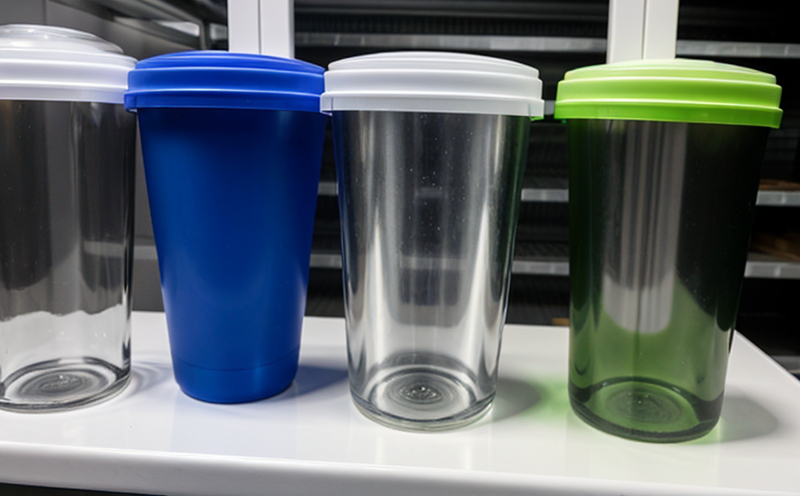ASTM D2794-09 Glass Impact Resistance
The ASTM D2794-09 standard specifies a method for determining the impact resistance of glass containers by subjecting them to controlled impacts. This testing is crucial in ensuring that glass packaging meets safety and durability standards, which are essential for protecting both products and consumers.
Understanding the impact resistance of glass packaging is vital for various sectors, including food and beverage, pharmaceuticals, and consumer goods, where product integrity and safety are paramount. The ASTM D2794-09 test helps manufacturers ensure that their containers can withstand potential impacts during transportation, storage, or use without compromising the contents.
The test method involves dropping a glass container from various heights onto a rigid surface until it breaks. The height at which failure occurs is recorded and used to determine the impact resistance of the glass. This information is critical for quality managers and compliance officers as they ensure that their products meet regulatory standards.
ASTM D2794-09 testing also supports research and development (R&D) engineers by providing data on how different factors, such as container shape, thickness, or material composition, affect impact resistance. This knowledge is invaluable for optimizing product design and enhancing safety features.
In the context of procurement, ASTM D2794-09 testing ensures that suppliers provide glass containers that meet the required standards. By specifying this test in contracts, purchasers can ensure they receive quality products that will protect their goods during transportation and storage.
The ASTM D2794-09 method is widely recognized for its accuracy and reliability, making it a cornerstone of glass packaging testing. It aligns with international standards and ensures consistency across different laboratories and regions.
Why It Matters
Impact resistance testing is critical in the pharmaceutical sector to ensure that glass containers can withstand potential impacts during transport and handling without compromising the integrity of the product. Inadequate impact resistance can lead to leaks, breakage, or contamination, which could result in significant financial losses and reputational damage.
- Customer Impact and Satisfaction: Ensuring packaging integrity enhances customer satisfaction by guaranteeing that products arrive undamaged and safe for consumption.
- Environmental and Sustainability Contributions: By reducing waste from broken containers, impact resistance testing supports sustainability goals. Properly designed glass containers can be recycled more effectively, minimizing environmental impact.
The ASTM D2794-09 test also plays a crucial role in the food and beverage industry, where product safety is non-negotiable. Glass packaging must not only protect the contents but also ensure they are safe for consumers. Proper testing helps manufacturers identify potential weaknesses in their glass containers, allowing them to make improvements.
In addition to these sectors, ASTM D2794-09 testing is essential for consumer goods manufacturers who need to ensure that their products can withstand various environmental conditions without compromising the safety of the packaging.
Customer Impact and Satisfaction
- Increased Product Integrity: By ensuring that glass containers meet impact resistance standards, customers can be assured that their products will arrive in perfect condition. This enhances customer satisfaction and loyalty.
- Reduced Return Rates: Properly tested packaging minimizes the risk of product damage during transportation and storage, reducing return rates for damaged goods.
- Enhanced Brand Reputation: Consistent quality through rigorous testing helps maintain a strong brand reputation. Customers trust brands that consistently deliver high-quality products.
For manufacturers, ASTM D2794-09 testing is an essential tool in maintaining product integrity and customer satisfaction. By ensuring that glass containers meet the required standards, they can reduce the risk of product damage and ensure that their goods arrive in perfect condition.
Environmental and Sustainability Contributions
- Minimized Waste: Properly designed and tested glass packaging reduces waste by ensuring that containers do not break during transport or storage. This leads to lower environmental impact.
- Better Recycling: Glass is 100% recyclable, but improperly designed containers can be difficult to recycle due to breaks or contamination. ASTM D2794-09 testing helps ensure that glass packaging is designed for easy recycling.
The ASTM D2794-09 test contributes significantly to environmental sustainability by promoting the use of glass packaging that is both safe and environmentally friendly. By ensuring proper design and durability, manufacturers can minimize waste and support sustainable practices.





